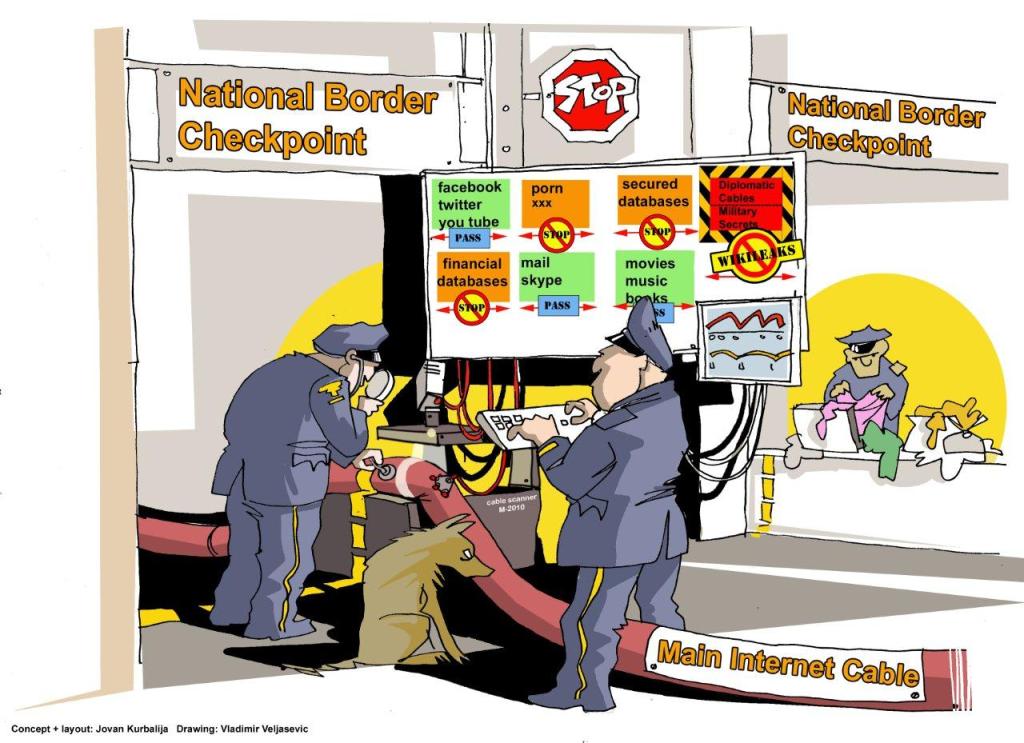After the deluge: Internet governance in the aftermath of WikiLeaks
Updated on 19 March 2024
One of the collateral consequences of the recent WikiLeaks situation will be its effects on Internet governance and policy. The foundations of Internet politics have been seriously shaken. The fissures that did not appear during previous stress tests including Iraq and Afghanistan, manifested themselves in a matter of days during the WikiLeaks episode. First, the WikiLeaks server was removed from Amazon.com without any judicial process. Second, the WikiLeaks domain name was removed by EveryDNS without any judicial process. Third, PayPal and Visa stopped providing services for WikiLeaks without any judicial process. These decisions were made in response to political and public pressure, mostly from the USA. This has seriously challenged one of postulates of Internet governance: that the United States is the benevolent guardian of the core Internet infrastructure. Regardless of their views about WikiLeaks per se, many national governments have started worrying that their core Internet resources, run by US companies or based in the USA, could face a similar destiny in a time of crisis.

The first reactions came very quickly, including a decision by the Russian government to start using open source software as a way to reduce its dependence on Microsoft and other US-developed proprietary software. Other governments will move towards taking control of their national e-resources. Already some governments in the EU are uneasy about the huge amounts of data and documents belonging to their citizens that are floating around in the clouds, clouds which are principally owned or run by US companies. The EU’s main concern is about the relaxed regime of data protection used by US Internet companies. Google is also under serious investigation by the EU’s anti-trust authorities.
A major battle can be expected over how the Internet is governed on a global level. So far, the system has consisted of a set of organisations, including ICANN (Internet Corporate for Assigned Names and Numbers), with a leading position held by the US government; the Internet Governance Forum (IGF), which has been the main discussion body without any decision-making power; and a set of private standard-setting organisations influenced by the private sector and academia, which have been shaping the structure of the Internet. Many governments have complained about the primus inter pares role of the USA and the US-heavy private sector. In 2011, we can expect that many national governments will adopt a two-track policy. On the one hand, they will continue reclaiming control of their national e-spaces, with the risk of fragmentation of the global Internet. On the other hand, they will accelerate pressure on the USA towards complete internationalisation of Internet governance and, in particular, of ICANN.
Paradoxically, the USA, which has resisted the internationalisation of Internet governance, may become one of its main proponents in 2011. With almost all major Internet companies based in the USA (Google, Facebook, Yahoo), and most Internet traffic passing through the USA, and with English as the main language, the main sufferer of a possible Internet fragmentation could be the United States. For example, if other countries start creating their own national clouds, the main casualty will be companies like Amazon, Google, and Facebook.
By having internationally agreed rules, the USA can foster the preservation of one Internet. The necessary rules could be agreed upon by an international convention on the Internet and administered by an international organisation of the Internet, a possible amalgam of ICANN, the ITU (International Telecommunication Union) and other main players in this field. Even by preserving the Internet as one global system, it is less likely that its other key characteristics – openness and freedom of access – will remain the same, since pressure will be on to introduce more regulations and legal responsibilities in using the Internet. Anonymity on the Internet may become one of the first targets. Identifying who is behind the screen may find enthusiastic support in many circles, including national governments and the copyright industry, among others. We can expect strange alliances; alliances crossing traditional division lines. WikiLeaks will be used as a ‘good’ excuse for different positions in future negotiations. This year definitely won’t be dull in the field of Internet governance.

Leave a Reply
Want to join the discussion?Feel free to contribute!